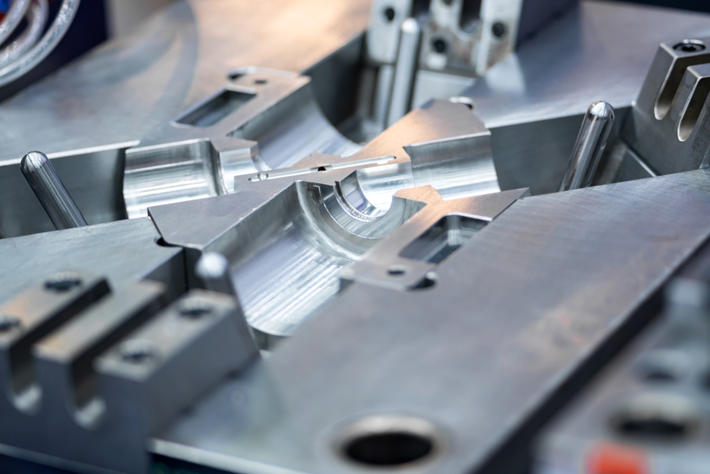Introduction
In recent years, there has been a growing demand for lightweight materials in various industries, ranging from aerospace to automotive. Magnesium, with its exceptional strength-to-weight ratio and excellent castability, has emerged as a game-changer in the manufacturing sector. This article will explore how magnesium casting is revolutionizing the industry by offering lightweight solutions and the potential benefits it can bring.
1. Magnesium Casting Process
Magnesium casting involves the process of pouring molten magnesium into a mold, allowing it to solidify and take the desired shape. The ability of magnesium to flow easily into intricate shapes and thin walls makes it a versatile material for manufacturing complex components. Additionally, magnesium casting can be achieved through various methods, including sand casting, permanent mold casting, and die casting, expanding its application across different industries.
2. Lightweight Solutions
One of the key advantages of magnesium casting is its lightweight nature. Magnesium is the lightest structural metal, weighing only about one-third of aluminum and one-fourth of steel. This lightweight property makes magnesium an ideal choice for applications where weight reduction is critical, such as in the aerospace and automotive sectors. By utilizing magnesium casting, manufacturers can produce components that are not only strong and durable but also significantly lighter, improving fuel efficiency and overall performance.
3. Enhanced Fuel Efficiency
With increasing concerns about environmental sustainability and stricter regulations on emissions, improving fuel efficiency has become a top priority for the automotive industry. Magnesium casting offers a solution to this challenge by reducing the weight of vehicles. By incorporating magnesium components, such as engine blocks, transmission cases, and structural parts, manufacturers can achieve significant weight savings. A lighter vehicle requires less energy to propel, leading to reduced fuel consumption and lower greenhouse gas emissions.
4. Performance and Safety
In addition to its lightweight nature, magnesium casting offers exceptional performance and safety benefits. Magnesium has excellent vibration damping characteristics, which can enhance the ride comfort and reduce noise in automotive applications. Furthermore, magnesium exhibits good heat dissipation properties, allowing components to withstand high operating temperatures. These attributes make magnesium casting particularly suitable for applications that require high performance and safety, such as aircraft components and sporting goods.
5. Environmental Sustainability
Apart from its contribution to fuel efficiency, magnesium casting also aligns with the principles of environmental sustainability. Magnesium is abundant in the Earth ‘s crust and can be easily recycled. In fact, the recycling process for magnesium requires only a fraction of the energy compared to the production of primary magnesium. By utilizing magnesium casting and integrating recycling practices, manufacturers can reduce their environmental footprint and promote a circular economy.
6. Challenges and Future Outlook
While magnesium casting offers numerous advantages, there are some challenges that need to be addressed. Magnesium is highly reactive, making it prone to corrosion. Special coatings or alloys are often required to protect magnesium components from environmental degradation. Furthermore, the cost of magnesium and its casting process can be higher compared to traditional materials, posing economic challenges for widespread adoption.
Despite these challenges, the future of magnesium casting looks promising. Ongoing research and development efforts are focused on improving corrosion resistance, reducing costs, and enhancing the mechanical properties of magnesium alloys. As these advancements progress, the use of magnesium casting is likely to expand further into new industries and applications.
Conclusion
Magnesium casting is revolutionizing the manufacturing sector by providing lightweight solutions that offer improved fuel efficiency, enhanced performance, and environmental sustainability. With its exceptional strength-to-weight ratio and castability, magnesium presents a viable alternative to traditional materials. As technology continues to advance, the use of magnesium casting is set to revolutionize various industries, ushering in a new era of lightweight and sustainable manufacturing.
-

- Prilagojeni deli in komponente za tlačno litje
-

- Deli in komponente Thixomolding, obdelana srednja plošča mobilnega telefona
-

- Kolesa za livarske dele iz magnezijeve zlitine s CNC obdelavo in površinsko obdelavo
-

- UAV deli za tlačno vlivanje iz magnezijeve zlitine
-

- Visokotlačno lito platišče iz magnezijeve zlitine OEM za e-kolo
-

- Okvir LED zaslona iz tlačne litine iz magnezijeve zlitine

 0086-750-5616188
0086-750-5616188 +86 13392089688
+86 13392089688 sales@zhongmei-tech.com
sales@zhongmei-tech.com








